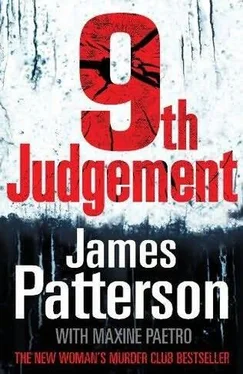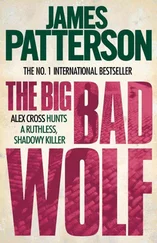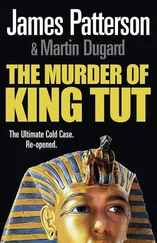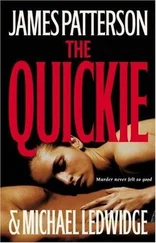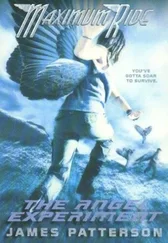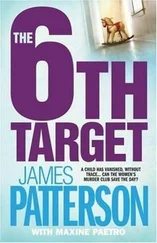Brady was saying, “He left the van doors open and arranged the bodies. Now here he is, walking up toward the fifth tier, where the next camera picks him up getting into the elevator. We have the tape from that, too. It’s ten seconds, a close-up of the top of his cap, no logo. Now he exits at street level.
“Three minutes and forty seconds,” Brady said, pointing the remote at the monitor, shutting it off. “That’s how much time elapsed from when he drew his gun to when he disappeared.”
WE WERE ON the wide leather couch in the living room, waiting for the eleven o’clock news. My feet were in Joe’s lap, and Martha was snoring on the rug beside me. I was frustrated and beyond exhaustion. I wanted to sleep, but my mind was spinning.
“A woman came into the Hall today,” I said to Joe. “She told Jacobi that a man approached her outside the Ferry Building the night the Kinskis were killed. Said he was lost. He was wearing a billed cap and a blue-and-white baseball jacket.”
“She was credible?”
“Jacobi said she was shaking and had half chewed her lip off. She told Jacobi the guy was creepy. She said she couldn’t help him and walked away with her baby, and he shouted after her, ‘I appreciate the fucking time of day!’ She’s seen the surveillance video and thinks it could be him.”
“Good news, Linds. A witness, of sorts.”
“It’s something, but, you know, it could have been anyone wearing a baseball jacket. Joe, WCF, FWC. And now CWF. You’re a puzzle addict. What do you get out of that?”
“West Coast Freak. Factory Workers’ Coalition. Chief Wacko Freak. Want me to keep going?”
“No, you’re right,” I said. “It’s gooseberries. The shooter is playing with us.”
“Listen, before I forget to tell you-”
“There,” I said, grabbing the clicker off the coffee table, amping up the volume as the familiar face of news anchor Andrea Costella talked above the “Breaking News” banner.
“We have news tonight about the Lipstick Killer, who was videotaped at a Union Square garage as he was leaving the scene of another horrific double homicide,” she said.
The video came on the screen, about ten seconds of the shooter entering the elevator car, stabbing the button with a gloved hand, and standing in one place, eyes lowered, until the doors opened and he exited into thin air.
“An anonymous witness described the shooter to the police, who have made a sketch available to this station,” Costella said. A drawing replaced the videotape on the screen.
“See?” I said to Joe. “Mr. Ordinary. No-color eyes, no-color hair. Regular features, regular nine mil slugs, no match to anything. But not mentioned to the viewers, he uses a suppressor, professional grade.”
“Sounds like he’s military. Special Ops. Or he’s a military contractor. Got the suppressor on the black market or overseas.”
“Yeah. The military angle makes sense. But there are, what, thousands and thousands of former military guys in the city? And half of them fit this guy’s description. Hey, what’s this?” I asked as another video came on the screen.
I watched with my mouth open as a handheld camera bumped along behind Claire. It was recording her leaving the morgue, heading to the parking lot just outside her office. Reporters fired questions about the victims and asked her if there was anything she could tell the people of San Francisco.
Claire turned her back to the cameras and got into her new Prius. She started it up, and I thought that was it- Get lost, you vultures -but she buzzed down the window, rested her elbow on the frame, and looked squarely at the cameras.
“Yes, I have something to tell the people of San Francisco, and I’m not speaking as the chief medical examiner. I’m speaking as a wife and a mother. Are we clear?”
There was a chorus of yeses.
“Moms, keep your eyes open,” Claire said. “Don’t trust anyone. Don’t park in lonely places, and don’t get near your car unless there are other people around. And, no kidding, get a license to carry a handgun. Then carry it.”
PETE GORDON SAT in the kitchen, laptop in front of him on the red Formica table, his back to the porch where Sherry was doing stupid puppet tricks for her brother. The stink bomb was shrieking with joy or fright, Pete really didn’t know which, because it was all like having a screwdriver jabbed through his eardrum.
Pete yelled over his shoulder, “Keep it down, Sherry! In a minute, I’m going to take off my belt.”
“We’ll be quiet, Daddy.”
Gordon returned to the letter he was composing, a kind of ransom note. Yeah. He liked thinking of it that way. He was a pretty good writer, but this had to be crystal clear and without any clues to his identity.
“An open letter to the citizens of San Francisco,” he wrote. “I have something important to tell you.”
He thought about the word “citizens,” decided it was too stiff, and replaced it with “residents.” Much better.
“An open letter to the residents of San Francisco.” Then he changed the second line: “I have a proposition to make.” Suddenly there was a shrill scream from the porch, and Sherry was shushing the stink bomb and then calling in through the window, “Daddy, I’m sorry, please don’t get mad. Stevie didn’t mean it.”
The baby was crying on both the inhale and the exhale, un-fucking-relenting. Pete clenched his hands, thinking how much he hated them and everything about the life he lived now. Look at me, Ladies and Gentlemen, Captain Peter Gordon, former commando, currently Househusband First Class.
What a frickin’ tragedy.
The only thing that gave him joy anymore was working on his plan. Thinking how, after he’d wasted Sherry and the stink bomb, it was going to give him great, great pleasure to show the princess who he really was. He could hardly wait to silence her nagging. Pete, sweetie, don’t forget to pick up the milk and don’t forget to take your meds, okay? Hey, handsome, did you make lunch for the kids? Make the bed? Call the cable guy?
He imagined Heidi’s face, pale in the middle of all that red hair, eyes like yo-yos when she realized what he had done. And what he was going to do to her.
Hi-hi, Heidi. Bye-dee-bye.
SARAH WELLS CROUCHED in the shrubbery between the huge Tudor-style house and the street, her clothes blending into the shadows. She was having a three-dimensional flashback of the Dowling job-how she’d hidden in the closet while the Dowlings made love, later knocking into that table of whatnots during her narrow frickin’ escape. And then the worst part-the murder accusation hanging over her.
She considered quitting while she was ahead. On the other hand, the Morley house was a prize.
The three-story white home with dark beams and bay windows belonged to Jim and Dorian Morley, the Sports Gear Morleys who owned a chain of athletic stores up and down the coast. She’d read everything about them on the Web and seen dozens of photos. Dorian Morley dressed to impress and owned a stunning jewelry collection that she kept in constant use.
Sarah had made special note of Mrs. Morley telling a Chronicle reporter that she loved to wear diamonds every day, “even around the house.”
Imagine. Everyday diamonds.
Which is why Sarah had put the Morleys on her to-do list, done several run-throughs to check out the traffic patterns at nine p.m. in their neighborhood, and pinpointed where to stash her car and where to hide. On one of her drive-bys earlier in the week, she’d even seen Jim Morley leaving the house in his Mercedes. He was stocky and muscular-the kind of build people called “brawny.”
Читать дальше
